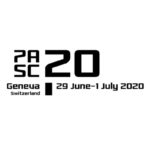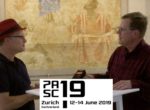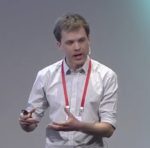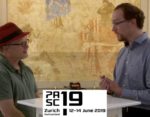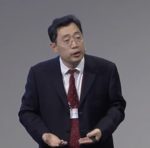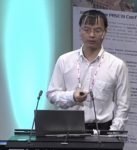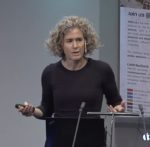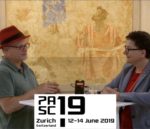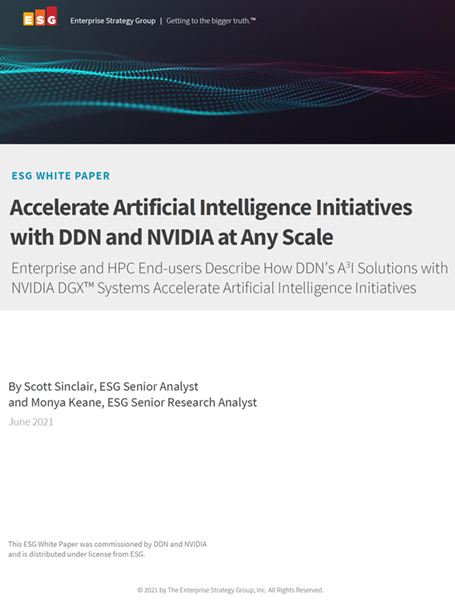The PASC20 conference has issued its Call for Submissions. The event takes place June 29 – July 1, 2020 in Geneva, Switzerland. “PASC20 is an international and interdisciplinary platform for the exchange of competences in scientific computing and computational science, with a strong focus on methods, tools, algorithms, application challenges, and novel techniques and usage of high performance computing.”
Professor Michela Taufer to Receive 2019 IBM Faculty Award
Professor Michela Taufer from the University of Tennessee has been selected to receive a 2019 IBM Faculty Award for $20,000 USD. This award is highly competitive and recognizes her leadership in High Performance Computing and its importance to the computing industry. “Dr. Taufer will lead work with IBM to bring the IBM Onsite Deep Learning Workshop on campus. As Deep learning and AI gain traction in scientific discovery, training EECS students in these disciplines will open tremendous opportunities for them in Tennessee and outside the state.”
Why PASC19 is a great show for the International Science Community
In this video from PASC19 in Zurich, Mike Heroux from Sandia National Labs shares the reasons he attends the conference every year. As a multi-disciplinary show, PASC gives him the opportunity to keep up with the international science community. “PASC19 is the sixth edition of the PASC Conference series, an international platform for the exchange of competences in scientific computing and computational science, with a strong focus on methods, tools, algorithms, application challenges, and novel techniques and usage of high performance computing.”
Accelerating High-Resolution Weather Models with Deep-Learning Hardware
Sam Hatfield from the University of Oxford gave this talk at the PASC19 conference. “In this paper, we investigate the use of mixed-precision hardware that supports floating-point operations at double-, single- and half-precision. In particular, we investigate the potential use of the NVIDIA Tensor Core, a mixed-precision matrix-matrix multiplier mainly developed for use in deep learning, to accelerate the calculation of the Legendre transforms in the Integrated Forecasting System (IFS), one of the leading global weather forecast models.”
PASC19 Evolves into an International Conference on Computational Science
In this video from PASC19, Torsten Hoefler from ETH Zurich describes how PASC19 has grown into an international conference with over 60 percent of attendees from outside Switzerland. After that, he describes a new groundbreaking programming model his team is developing that centers around the minimization of data movement for computation.
Real-World Applications in Numerical Ocean Modeling
Fangli Qiao from the First Institute of Oceanography in China gave this talk at PASC19. “In this interdisciplinary dialogue we will address such questions as – what is state-of-the-art in numerical ocean modeling? And what are the current trends in model improvement? We will consider several applications of the surface wave-tide-circulation coupled numerical ocean model, such as nuclear radiation spread prediction following damage to the Fukushima Nuclear Power in 2011, and the rescue of lives at sea after boats capsized near Phuket in 2018.”
Large-Scale Optimization Strategies for Typical HPC Workloads
Liu Yu from Inspur gave this talk at PASC19. “Ensuring performance of applications running on large-scale clusters is one of the primary focuses in HPC research. In this talk, we will show our strategies on performance analysis and optimization for applications in different fields of research using large-scale HPC clusters.”
The Challenges of Updating Scientific Codes for New HPC Architectures
In this video from PASC19 in Zurich, Benedikt Riedel from the University of Wisconsin describes the challenges researchers face when it comes to updating their scientific codes for new HPC architectures. After that he describes his work on the IceCube Neutrino Observatory.
Flexibly Scalable High Performance Architectures with Embedded Photonics
Keren Bergman from Columbia University gave this talk at PASC19. “Data movement, dominated by energy costs and limited ‘chip-escape’ bandwidth densities, is a key physical layer roadblock to these systems’ scalability. Integrated silicon photonics with deeply embedded optical connectivity is on the cusp of enabling revolutionary data movement and extreme performance capabilities.”
Video: Dr. Michela Taufer sets the stage for SC19 with ‘HPC is Now’
In this video, Dr. Michela Taufer from the University of Tennessee recaps PASC19 and looks ahead to SC19. “SC is still a place to share new and futuristic ideas, but our plenary sessions, panels, papers and conversations, aren’t just about the future anymore. They’re about what’s happening in the world of HPC today. Because … HPC is Now. That’s the theme of SC19 in Denver next November, and I believe it perfectly captures the state of this exciting field.”

